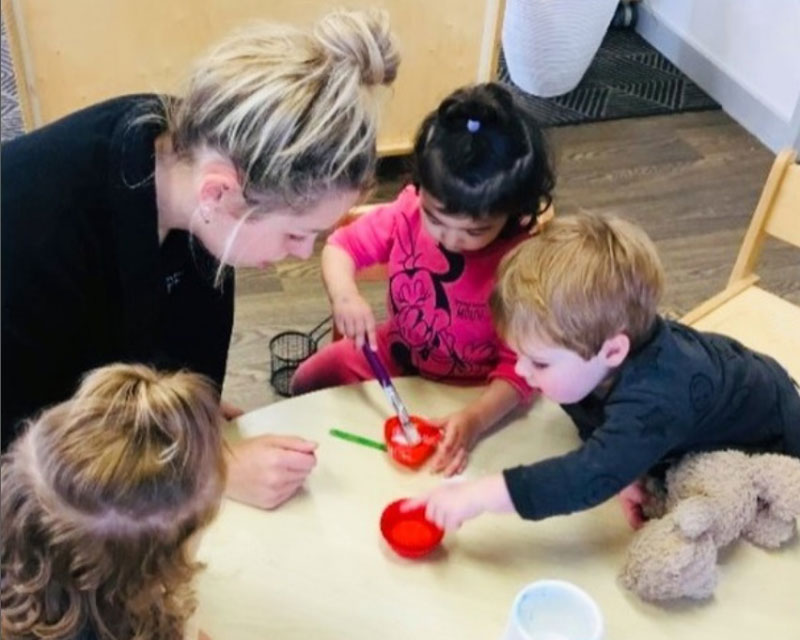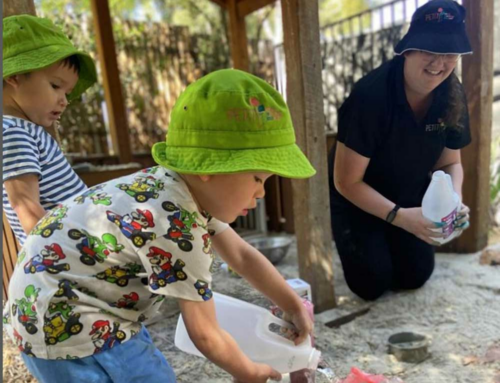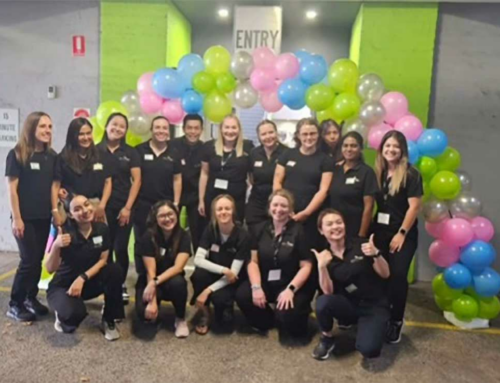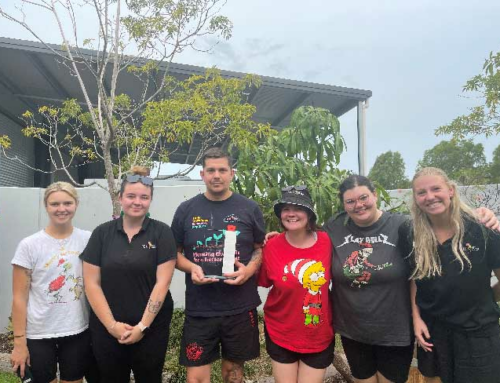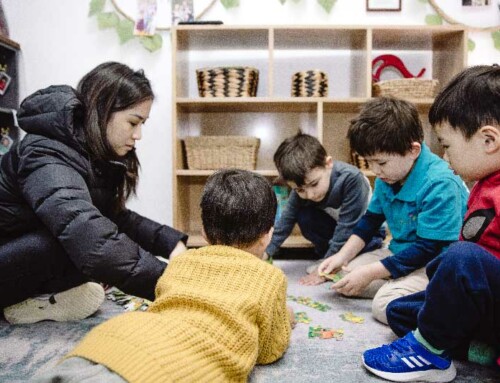All children deserve the best start in life. At Petit Early Learning Journey, inspiring children’s learning and development journey is embedded in all we do. Children thrive when we include them and their families in each child’s learning journey.
Educators’ qualifications, personal qualities, knowledge of development theories and skills make an enormous difference in nurturing children’s desire to enjoy and want to learn every day.
Displaying and sharing your enjoyment of play and learning with children, while collaborating and communicating the development journey with stakeholders, is a quality we appreciate in our educators.
Let’s examine how Petit ELJ educators support and communicate each child’s learning and development journey.
We draw on expert knowledge from our Education and Practice Advisors, Julie Ker and Emma Davis, and insights from our Petit ELJ Barton and Petit ELJ Kew teams on:
- Development stages – a foundation for guiding and supporting children
- How our teams support learning and development
- Development theories
- The processes, steps and programs supporting a child’s learning and development journey
- How communication plays an integral role
- A learning journey example
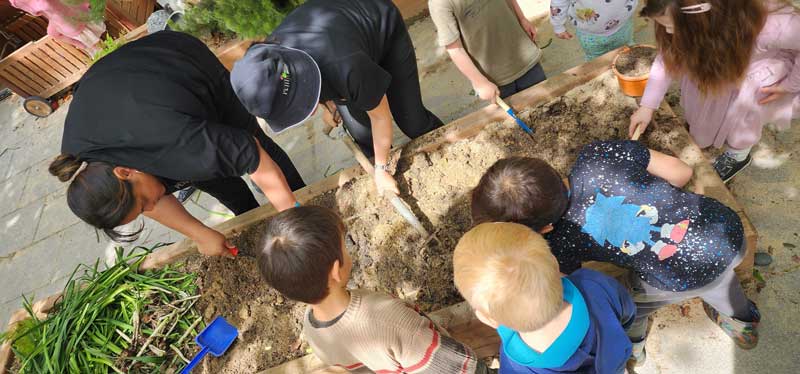
How Petit ELJ guides its teams through its philosophy, beliefs and practices
From our Education and Practice Advisors Julie Ker and Emma Davis:
Development stages a foundation for guiding and supporting each child
Petit ELJ’s beliefs and practices focus on each child as a capable learner. Each child is on their own learning journey as they grow and develop. Educators use developmental areas as foundation knowledge to guide and support each child to grow in their own way.
At Petit ELJ, we value the whole child, so we share learning experiences and inquiries with the children that will extend and encourage each child to develop with a strength-based approach. (EYLF pg 12).
How our teams support learning and development
Petit ELJ’s beliefs and practices guide educators’ strong connections and rich relationships with all children. From the first day, a child’s educators at Petit ELJ will start forming bonds with the child and their family. These connections form trusting and rich relationships.
Sharing time and being present with each child enables educators to build an understanding of the whole child. These are the foundations of the play-based learning program provided for each child.
Children feel they belong and are safe and connected through trusting and rich relationships with educators. Children thrive and learn best when they feel secure and have a sense of belonging. (EYLF pgs 14 to 16.)
Development theories
Petit ELJ is guided and supported through learning theories that best connect with the child as our focus and how they best learn through play.
We take our view firstly to Urie Bronfenbrenner as the child is at the centre of the learning community and all the communities that circle around the child support their learning journey.
A strong sense of belonging, being and becoming is connected to this theorist. Our beliefs and everyday practices weave daily practices as we value the whole child and connections with their family and community. (Child Centre approach – NQF area 1.)
To engage in learning through a play-based approach, we use the learning environment to enable children to explore, extend their learning and develop new inquiries.
These practices connect to a Reggio Theorist approach. As we use the learning environments as the third teacher, we value each child for the many ways they learn (child’s 100 languages) and respect the image of the child. (Inclusive and Educational Learning Environments – NQF Area 3.)
Petit ELJ’s studio program group learning books and children’s individual learning stories are how we share meaningful engagements and inquiries from the children’s world.
These documents are completed alongside children and are the foundation of the play-based learning programs. The children’s voices, ideas, thinking, mark-making and decisions are all part of the shared approach educators embed in daily practices alongside children. (Educational Programs- agency – NQF Area 1 – EYLF planning cycle pg 27.)

Process for supporting a child’s individual learning goals
“At Petit ELJ Kew we start with the child’s enrolment and ask many questions,” says Centre Director Agnes Teo. “Even during the initial tour, families have many questions and we take notes. Then the enrolment forms are all about the child.”
“When the family comes for their first orientation, the lead educator spends about an hour with the family, learning about them and their child. We record this information, and then the next step is to discover individual learning goals with the parent.”
“We record all the information we learn from our discussions with the family and the child in our programming book. We then have Storypark daily communications where families receive a story each day.”
“We also provide group learning stories every week, and then we create children’s notes every day, which parents are welcome to read and add to these notes.”
“Verbal communications and conversations with parents at drop-offs and pick-ups are critical, as are our bi-annual parent-teacher meetings. So, we listen and collaborate with parents in their child’s learning and development journey.”
“Communication is integral as sometimes we don’t have a holistic view of a child. Information about the child’s home influences how we approach the program and the child’s experiences at the centre.”
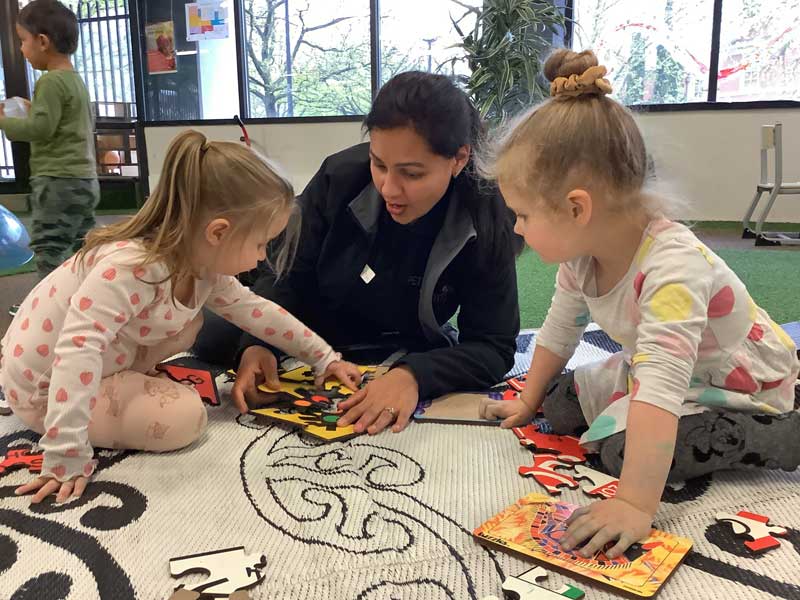
Communicating with each other and children
“Some of the strategies we use to support children’s learning and development are through individual observations,” says Petit ELJ Barton’s Lead Educator Sangeeta Thapa. “We work as a team to understand each child’s needs, likes and interests.”
“We cherish one-on-one time during rituals such as nappy changes and meal times. Communicating and engaging children in their development and learning builds their self-esteem and confidence. It encourages children to participate and builds meaningful bonds.”
“Communication is non-judgemental. Instead, we show an immense interest in each child’s journey of learning and development.”
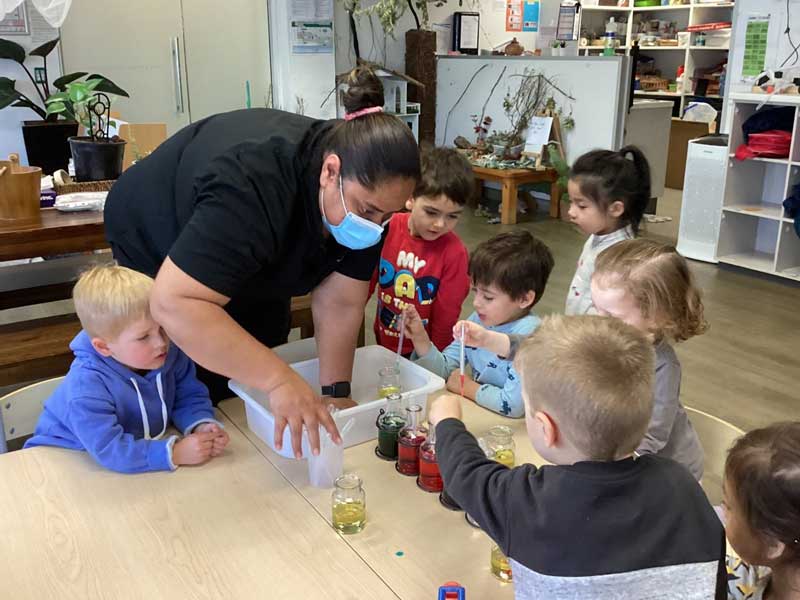
Reflection on a successful learning journey example
“We cared for a child who refused to eat lunch and some morning and afternoon teas at the centre,” says Petit ELJ Barton, Lead Educator Roseyra Lopez Gomez. “So we began having regular conversations with the family to address the child’s progress and development.”
“At first, we documented the situation through daily observations about their nutrition and rituals. Once we collected the information, we discussed it with the educational leader and the child’s family.”
“We identified possible triggers and made an action plan. We created a list of foods the child liked eating at home and the service. We then collected and read literature on the topic to strategise some solutions, such as:
- Sharing one-to-one time with the child at mealtime
- Including the child in conversations with their educators and family about the benefits of nutrients and different foods
- Initiating games about colour and shape recognition to make mealtimes fun and interactive
- Participating in role modelling by eating at the same time as the child
- Offering the centre menu with some preference food on the side
- Challenge the child to taste different flavours
- Providing other food choices
- Praising the child when they took a positive step.”
“We documented the entire process and progress, and by week five, the child felt comfortable and supported and began trying different foods. We also observed that the child was stronger emotionally as they began to negotiate their meal choices and preferences.”

Embrace your passion with Petit Early Learning Journey
At Petit ELJ, our teams have more than one thing in common, but what really unites them is their passion for caring and educating children. Observing and being part of the incredible journey that children and their families embark on in early childhood education and care, calls to many early childhood professionals.
Our teams thrive on collaboration and professional development. They come from a wide range of backgrounds and qualifications and embrace a belief in a shared approach to pedagogy and teaching.
Are you ready to answer your calling?
